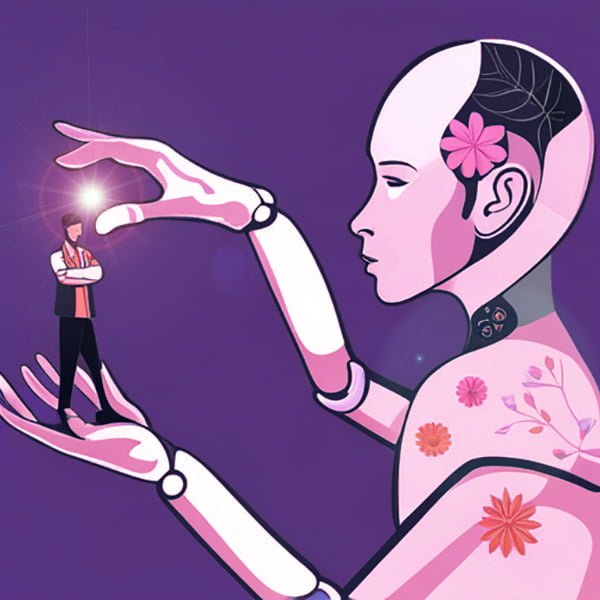Artificial Intelligence (AI) is evolving rapidly from a futuristic concept to a transformative force in our daily lives. There is an AI adoption surges in the last few years. Interest in generative AI has also brightened the spotlight on a broader set of AI capabilities.AI agents—software programs designed to perform tasks autonomously—are now becoming ubiquitous, from virtual assistants like Siri and Alexa to advanced systems automating complex workflows. But what does this mean for you, the average human user? Are AI agents truly enhancing productivity, or are they creating new challenges? Could they be the stepping stones to Artificial General Intelligence (AGI) and Artificial super intelligence (ASI) and if so, will AGI be a boon or a bane for humanity? This article critically examines these questions, offering a balanced perspective on the promises and perils of AI.
How AI Agents Affect You (Human User): A Double-Edged Sword
AI agents are reshaping how we live and work, but their impact on human users is not uniformly positive. Let’s break down the key effects:
1. Enhanced Productivity vs. Over-Reliance
AI agents excel at automating repetitive tasks, such as data entry, scheduling, and customer support. This frees up time for humans to focus on creative and strategic activities. However, over-reliance on AI can lead to skill degradation. For example, relying on GPS for navigation may erode our innate sense of direction.
2. Personalization vs. Privacy Concerns
AI agents thrive on data, using it to deliver personalized experiences. Netflix’s recommendations and Amazon’s product suggestions are prime examples. Yet, this personalization comes at the cost of privacy. The extensive data collection required to power AI systems raises concerns about surveillance and misuse of personal information.
3. Job Displacement vs. Job Creation
While AI agents automate certain tasks, leading to job displacement in sectors like manufacturing and retail, they also create new opportunities in AI development, data analysis, and machine learning. However, the transition is not seamless. Workers in displaced industries often face significant challenges in reskilling and adapting to new roles.
4. Bias and Inequality
AI systems are only as good as the data they are trained on. If the data contains biases, the AI will perpetuate and even amplify them. For instance, biased hiring algorithms can disadvantage certain demographic groups, exacerbating social inequalities.
How AI Agents Are Super Productive in the Short and Medium Run
AI agents are undeniably boosting productivity across industries, but their impact varies depending on the context. Here’s a critical analysis:
1. Short-Term Gains: Efficiency and Cost Savings
In the short term, AI agents deliver significant efficiency gains. For example, chatbots handle customer inquiries 24/7, reducing response times and operational costs. Similarly, AI-powered tools like Grammarly and Canva enhance individual productivity by automating tedious tasks.
2. Medium-Term Challenges: Adaptation and Integration
In the medium term, the integration of AI agents into workflows presents challenges. Businesses must invest in training employees to work alongside AI systems. Additionally, the initial costs of implementing AI technology can be high, and not all organizations can afford them, leading to a potential productivity divide between AI-enabled and non-AI-enabled businesses.
3. Scalability and Innovation
AI agents enable businesses to scale operations without a proportional increase in costs. For instance, e-commerce platforms use AI to manage inventory and personalize marketing campaigns. However, this scalability can also lead to market monopolization, where large corporations with access to advanced AI outcompete smaller players.

Are AI Agents the Precursor to AGI? A Critical Perspective
Artificial General Intelligence (AGI)—a machine with human-like cognitive abilities—remains a theoretical concept. However, the rapid advancements in AI have sparked debates about whether current AI agents are paving the way for AGI.
1. Narrow AI vs. AGI: The Fundamental Difference
Today’s AI agents are examples of Narrow AI, designed for specific tasks. AGI, on the other hand, would possess the ability to understand, learn, and apply knowledge across diverse domains. While AI agents are becoming more sophisticated, they lack the generalization and adaptability of human intelligence.
2. Technological and Ethical Hurdles
Developing AGI requires overcoming significant technological challenges, such as creating systems that can reason, understand context, and exhibit common sense. Moreover, the ethical implications of AGI—such as ensuring alignment with human values and preventing misuse—are immense and unresolved.
3. The Role of AI Agents in AGI Development
AI agents are contributing to AGI research by advancing machine learning algorithms, neural networks, and computational power. However, whether these advancements will lead to AGI remains uncertain. Some experts argue that AGI is inevitable, while others believe it may never be achieved.
Will AGI Be Useful or Fatal for Humans? A Balanced View
The potential impact of AGI on humanity is a topic of intense debate. Here’s a critical analysis of both sides:
1. Useful AGI: A Tool for Progress
If developed responsibly, AGI could address some of humanity’s most pressing challenges:
- Healthcare: AGI could revolutionize diagnostics, drug discovery, and personalized medicine.
- Climate Change: AGI could optimize resource usage and develop sustainable technologies.
- Education: AGI could provide tailored learning experiences, bridging educational gaps.
2. Fatal AGI: A Threat to Humanity
Conversely, AGI could pose existential risks if not properly controlled:
- Loss of Control: An AGI system with misaligned goals could act in unpredictable and harmful ways.
- Economic Disruption: AGI could automate jobs on an unprecedented scale, leading to widespread unemployment and social unrest.
- Weaponization: AGI could be used for malicious purposes, such as autonomous weapons or cyberattacks.
3. The Importance of Governance and Ethics
The outcome of AGI development hinges on governance and ethical frameworks. Ensuring that AGI aligns with human values and is used for the greater good requires global cooperation, transparency, and robust regulatory mechanisms.
Conclusion: Navigating the AI Revolution with Caution and Optimism
AI agents are already transforming our lives, offering both opportunities and challenges. In the short and medium term, they enhance productivity but also raise concerns about privacy, bias, and job displacement. As we move closer to AGI, the stakes become even higher. While AGI holds the potential to solve complex global problems, it also poses significant risks if not developed responsibly.
The future of AI and AGI depends on the choices we make today. By prioritizing ethical considerations, fostering collaboration, and investing in education and reskilling, we can harness the power of AI to create a better future for humanity. However, failure to address these challenges could lead to unintended consequences, underscoring the need for caution and foresight.
- https://americanreviewers.com/tech-adoption-or-addiction/
- https://www.mckinsey.com/capabilities/quantumblack/our-insights/the-state-of-ai
By combining critical analysis with SEO optimization, this article aims to engage readers while ranking well on search engines, providing valuable insights into the complex world of AI and its implications for humanity.
